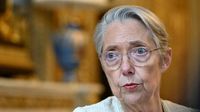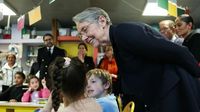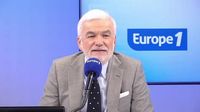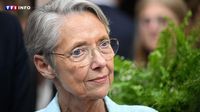On April 7, 2025, Élisabeth Borne, the French Minister of Education, sparked controversy during an appearance on LCP when she suggested that students should begin contemplating their professional futures almost from kindergarten. "It is necessary to prepare very young, well, from the start, almost from kindergarten, to reflect on how we project ourselves into training and a profession tomorrow," she stated, emphasizing the importance of early career orientation.
However, her comments quickly drew criticism from various quarters. Guislaine David, a representative from the teachers' union, dismissed her remarks as "lunar," implying they were out of touch with reality. Lisa Kamen-Hirsig, a school teacher who appeared on RMC, echoed this sentiment, stating that it is unrealistic to expect kindergarteners to make such decisions about their futures.
In a bid to clarify her position, Borne later took to social media, asserting, "No! We are not going to orient students from kindergarten! On the contrary, we must ensure that we do not condition their orientation choices." This statement came after significant backlash on social media, where many users mocked her initial remarks. One satirical account quipped about a fictional new educational track for "magician-pirate-astronauts" for kindergarteners, highlighting the absurdity perceived in her suggestion.
Despite the backlash, Borne maintained that early preparation is essential, citing statistics that show a significant number of students—200,000 out of one million registered on Parcoursup in 2025—are in need of reorientation. She argued that the education system must not only prepare students for their future careers but also ensure that they are not conditioned by gender biases, particularly in subjects like mathematics.
On April 9, Borne further elaborated on her views during an interview with Sud Radio, admitting that her previous statements had not been clear. She reiterated the need to avoid pre-determining students' career paths too early, emphasizing that children should be encouraged to explore their capabilities and develop self-confidence. "We must ensure that students can discover their capacities, gain confidence in themselves, and be given the desire to learn," she explained.
François Bayrou, a prominent political figure, weighed in on the debate, arguing that early orientation could be harmful to students, suggesting that not all children develop at the same pace. His comments reflect a broader concern regarding the pressure placed on students to make early decisions about their futures.
The conversation around educational orientation is not just about individual students but also about the systemic issues within the French education system. Critics argue that the push for early orientation is a response to the challenges posed by a high rate of students passing the baccalaureate—90 to 95%—which has led to a saturation of students needing guidance on their next steps.
As the debate continues, a consultation on the topic of educational orientation is currently underway, with conclusions expected by the end of April 2025. This initiative aims to gather input from various stakeholders in the education sector to address the concerns raised by Borne's comments and to formulate a more coherent strategy for guiding students through their educational journeys.
In summary, Élisabeth Borne's comments have ignited a significant discussion about the appropriateness and feasibility of early career orientation in education. While her intention to prepare students for their futures is commendable, the execution of such a strategy remains contentious and requires careful consideration of developmental psychology and educational best practices.





